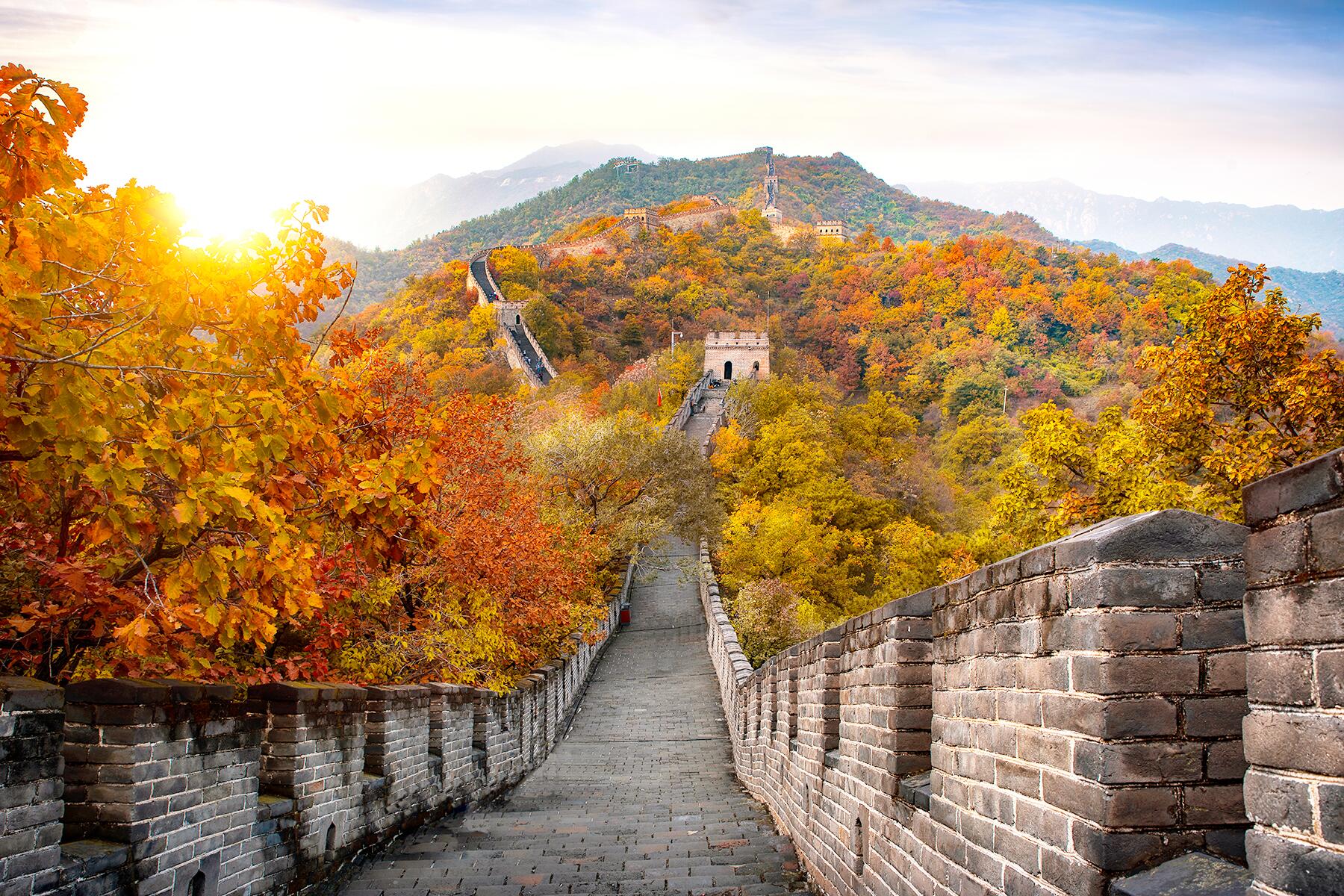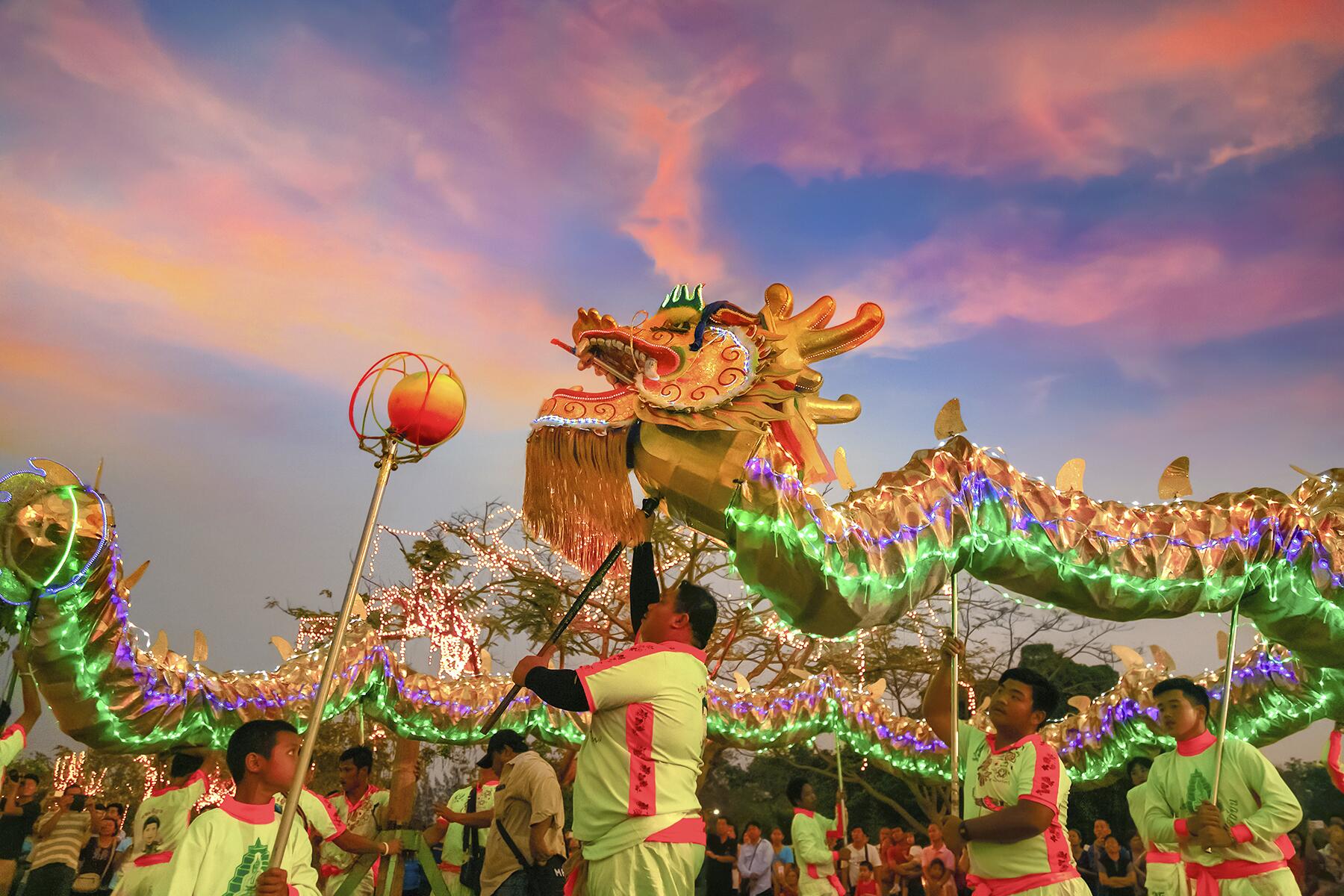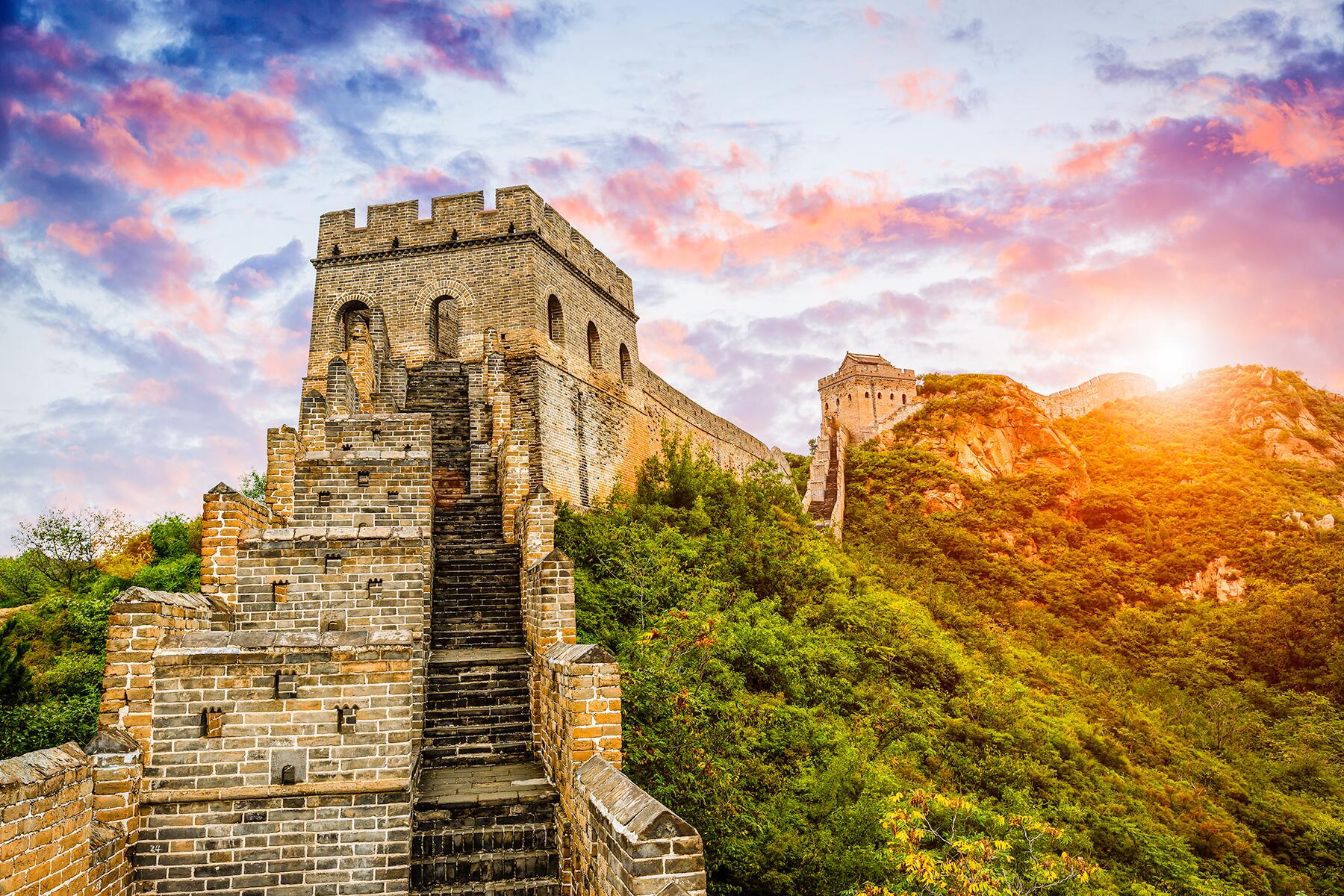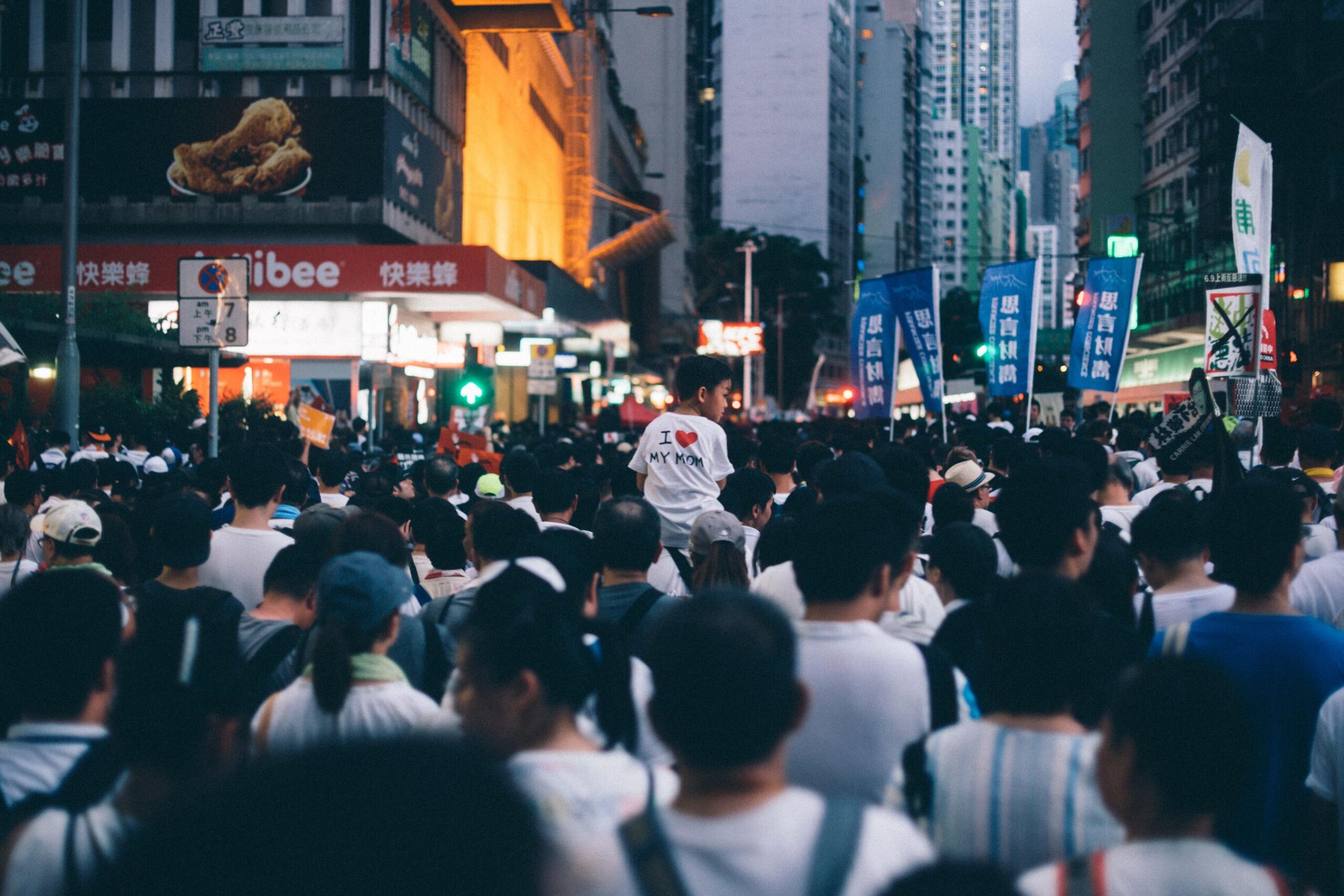Here's what's happening in Hong Kong right now.
For the majority of 2019, Hong Kong was rocked by protests and civil unrest. An average day last year brought petrol bombs exploding at MTR exits, tear gas suffocating people in the streets, and citywide transportation strikes. As of December, the Hong Kong Police Force fired as many as 10,000 rounds of tear gas and made more than 5,800 arrests.
Then came the novel coronavirus (COVID-19). Hong Kong’s famously crowded streets are now deserted. Schools are suspended until after Easter, and anyone who can work from home is clocking in remotely. It’s as if the entire city has gone into hibernation. And that includes the protesters. At their peak in 2019, Hong Kong’s anti-extradition and pro-democracy protests took place nearly every other night of the week, often popping up at a moment’s notice. But as the coronavirus dominates headlines, the protests have taken a backseat—for now. The protests will likely resume once the virus fizzles out in summer, as experts have predicted, just in time for the anniversary of the first mass march on June 9.
Recommended Fodor’s Video
In the meantime, we take a look at what’s happening in Hong Kong:
Remind Me: What Were the Protests About?
A series of large-scale protests started in June 2019, following the Hong Kong government’s attempt to pass an extradition bill which many felt threatened the city’s autonomy and rule of law. If the bill had passed, both residents and foreigners feared they could be extradited to mainland China where legal proceedings are sketchy, to say the least.
An estimated 1 million people took to the streets on June 9, 2019, to protest the bill, followed by a second mass march on June 12 that organizers say assembled nearly 2 million people, or roughly a third of the city’s 7.5 million population.
Angered by the government’s inaction and the disproportionate use of force by police, which has been condemned on several occasions by the Human Rights Watch and the UN High Commissioner for Human Rights, the protests evolved from one demand—withdraw the bill—to five:
- Total withdrawal of the extradition bill
- Retraction of the government’s description of the protests as “riots”
- Unconditional release of arrested protesters and charges against them dropped
- An independent inquiry into police behavior
- Adoption of universal suffrage
“The reality is, we all understand that the government will not fulfill all of the demands,” says Andromeda, aged 38, a protester who requested we use only her first name. “The priority is to investigate police violence through the independent investigation committee.”
Have the Protesters Achieved Any of Their Goals?
Yes. The extradition bill was fully withdrawn in October 2019. That’s the only demand that has been satisfied so far. “The objective has shifted from rejecting the extradition law into a fight between police and citizens regarding police brutality and justice,” says 22-year-old Dickson, a frequent protester who requested we withhold his surname.
What Is Hong Kong’s Relationship With China?
A former British colony, the UK returned Hong Kong to China in 1997 during what’s now referred to as the Handover. Officials from both countries signed the Sino-British Joint Declaration, which established a “One Country, Two Systems” policy whereby Hong Kong become a special administrative region (SAR) with its own legal system, currency, capitalist economy, and mini-constitution called the Basic Law.
Designed to provide a 50-year transition period from 1997 to 2047, the agreement also safeguarded the city’s freedom of speech, assembly, and rule of law. However, many residents feel that mainland China is prematurely encroaching upon these rights and freedoms, which are not enjoyed in mainland China.
“It’s mainly about freedom of speech. The Causeway Bay bookseller Gui Minhai [who sold gossipy books about Chinese leaders] was recently sentenced to 10 years in jail. Another example is Simon Cheng, who used to work for the UK consulate and was arrested and tortured in China.”
“Now it’s like one country one system; Hong Kong is just like another city in China,” says Andromeda.
How Have the Protests Affected Tourism Sites?
At the moment, the protests have mostly died down due to the virus. But last year, rallies and marches directly impacted several major tourist areas including Causeway Bay, Central, Tsim Sha Tsui, Victoria Park, Wan Chai, and Sai Ying Pun—common districts where travelers and locals shop, dine, and explore.
Many hotels have also been affected due to their location. For example, when violent standoffs with police took place in Tsim Sha Tsui, travelers staying in hotels such as The Peninsula, InterContinental Hong Kong, and Rosewood Hong Kong had to take special precautions to avoid the chaos. At times, they were advised to stay indoors.
In November 2019, the police laid siege to Hong Kong Polytechnic University in Hung Hom, northeast of Tsim Sha Tsui, firing rubber bullets and tear gas at hundreds of protesters who were trapped inside. In response, protesters shot arrows and threw bricks at police. As Hotel Icon is right across the street, travelers had to exercise extreme caution to avoid the war-like conflict zone.
“On August 5, I was at a peaceful sit-in protest at the Wong Tai Sin Temple [a well-known tourist attraction in Kowloon],” recalls Andromeda. “There were a lot of elderly people there. Some front-line protesters started setting up rock blocks. The police started to fire tear gas non-stop. They didn’t care whether the environment was suitable for tear gas. They shot in every direction—even at the temple and the sports playground where the peaceful protestors gathered.”
How Else Have the Protests Evolved?
Many Hongkongers have started to express their politics with their pocketbooks. This has given rise to a polarizing, color-coded economy, where Hong Kong residents are supporting businesses based on their political beliefs. “Yellow” establishments openly support the pro-democracy movement, while “blue” side with the government and police force.
There’s even an app to help you navigate. Dubbed WoLeiEat (meaning “to eat with you” in Chinese), the dining app lists more than 3,000 eateries and their affiliations.
“I think the yellow economy is working,” adds Andromeda. “My friends have downloaded the app to support these businesses. I have also seen a lot of people lining up at yellow shops—one really successful example is AboutThai [a lifestyle shop with various locations across Hong Kong]. Meanwhile, Maxim’s, a ‘blue’ brand, has closed down a lot of shops. For me, I have stopped going to Starbucks and Pacific Coffee [since these companies are associated with pro-China policies].”
How Can I Support Independent Hong Kong Businesses?
With this double punch to the economy—first, the protests, followed by coronavirus fears—Hong Kong businesses are seriously struggling. It’s more important than ever to support local businesses at every opportunity.
If you’re visiting Hong Kong anytime soon, join a local food and history tour with Little Adventures in Hong Kong; see Hong Kong’s pink dolphins on a scientist-led boat outing with Hong Kong Dolphinwatch; and dine at independently run restaurants such as The Chairman, Yau Yuan Xiao Jui and Hoi An Cafe.
Is It Safe to Travel There?
At this time, the U.S. Centers for Disease Control and Prevention (CDC) “does not recommend canceling or postponing travel to Hong Kong” due to the virus.
As of today, Hong Kong has reported 121 cases of coronavirus and 3 deaths. Given the virus’s contagious nature, it’s essential that travelers take precautions. The CDC recommends washing your hands frequently throughout the day, particularly before eating, for at least 20 seconds at a time. It’s also important to avoid close contact with others and stop touching your face.
When visiting Hong Kong, it’s considered hygienic and culturally sensitive to wear a mask when walking on the street, shopping, or riding public transit. “I have noticed that many foreigners come to Hong Kong but they don’t wear masks. This really worries the local people,” says Andromeda. “Foreigners need to understand that masks are part of the culture in Hong Kong [in terms of precautionary measures].”
When evaluating the civil unrest, the US Department of State ranks Hong Kong as a Level 2 out of 4 (“Exercise Increased Caution”).
What Precautions Has the City Taken Regarding the Virus?
The government has partially closed borders with China as well as implemented compulsory quarantine requirements for anyone who set foot in mainland China within the past 14 days. At the airport, expect to undergo a short health screening which includes a temperature check and a declaration about your recent travels.
What About Downtown?
Shops and restaurants are still open, though many will check your temperature before letting you inside. Some may require you to wear a mask to enter, so prepare accordingly. In terms of transportation, the Star Ferry and Peak Tram are operating as usual. The MTR (the city’s subway system) is running limited services due to both the virus and protests. You can check the latest updates here.
Has Tourism Been Affected by the Virus and Protests?
Yes, dramatically. The city recorded a 99% plunge in visitors this February compared with the same month in 2019. Most of the government-run museums (including the newly renovated Hong Kong Museum of Art and the Hong Kong Heritage Museum) have been closed since January, though the government just announced that some museums will gradually resume operations with limited hours this March. Check here for the latest updates.
In addition, attractions that normally see large crowds, such as Hong Kong Disneyland, Ocean Park, and Ngong Ping 360 (the cable car to the Big Buddha) on Lantau Island are closed.
“Daily activities have resumed in recent weeks,” says Dickson. “However, some stores are still closed and the streets are pretty empty. If you want to experience Hong Kong without being in a huge crowd it is best to come right now. But do not expect to experience a joyful, lively side of HK.”
Any Advice for Traveling in Hong Kong If the Protests Pick up Again?
It’s not a matter of “if” but when. The public expects protests to regain momentum after the virus runs its course—most likely this summer. For the most up-to-date information, be sure to check local news platforms such as the South China Morning Post, which operates a live blog during unrest.
In addition, local publications like Inkstone and Hong Kong Free Press are excellent resources. When planning your day, we’d recommend reviewing HK Map Live, which crowdsources protestor and police movements in real-time.
“The protests have been reduced due to the coronavirus,” says Andromeda. “But it doesn’t mean that they have forgotten about the fight for democracy.”




